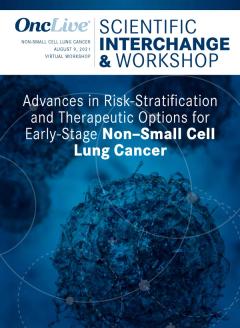
Dr. Langer on the Need for Reflex Testing in NSCLC
Corey J. Langer, MD, discusses the need for reflex testing in patients with non–small cell lung cancer.
Corey J. Langer, MD, thoracic oncologist, professor of medicine at the Hospital of the University of Pennsylvania, Abramson Cancer Center, discusses the need for reflex testing in patients with non–small cell lung cancer (NSCLC).
Reflex testing should be standard practice in the metastatic setting for patients with nonsquamous NSCLC, irrespective of smoking history or histology, according to Langer. Eventually, automatic assessment of PD-L1 expression and select molecular markers should become routine in lung cancer, without the need for a special order, Langer adds. This is already standard practice in breast cancer, where estrogen receptor, progesterone receptor, and HER2 assessments are ordered automatically, Langer explains.
Moreover, an array of molecular markers in lung cancer, such as EGFR, ALK, ROS1, MET, HER2, and NTRK should be assayed without a specific request, Langer adds. In the metastatic setting, PD-L1 status is critical for guiding treatment decisions, particularly in the absence of other identifiable molecular markers, Langer concludes.








































